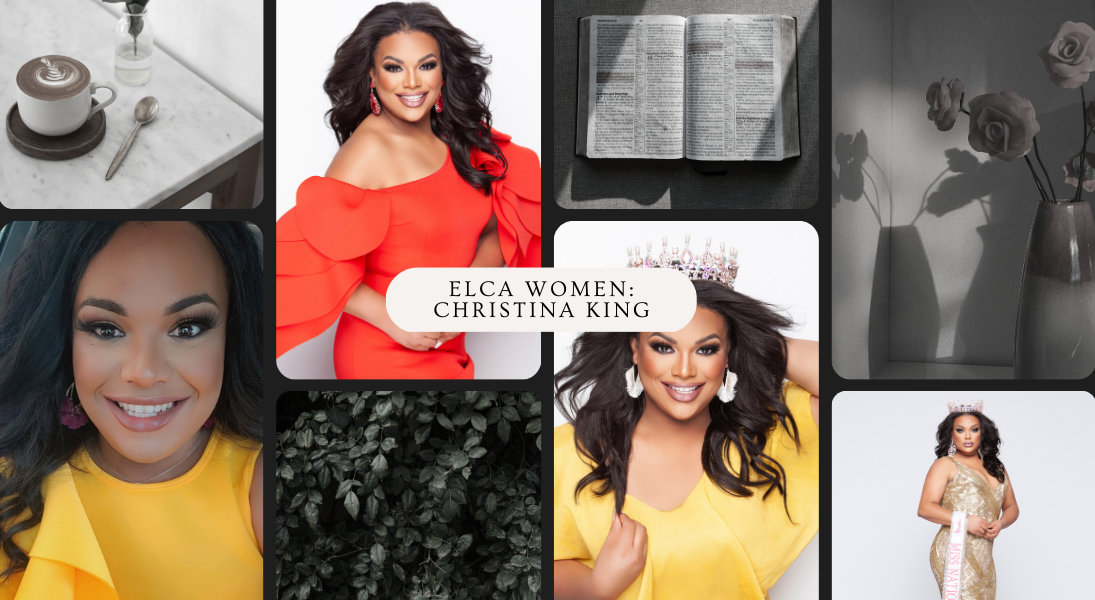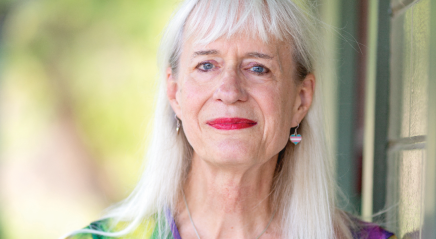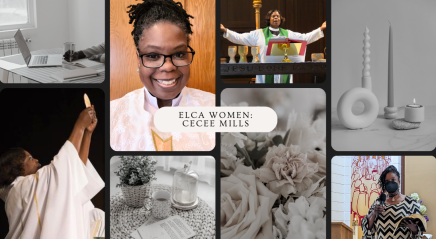As we near the end of Women’s History Month, we would like to feature a few of the women in our church to remind everyone that there are universal and unique ways in which womanhood is celebrated in the church and throughout the nation. Today we are speaking with Christina King (she/her), who is a member of First Lutheran Church in Galesburg, Ill., and serves on multiple committees in her synod.
Responses have been edited for publication.
What women have inspired you, and why?
My mother is my biggest inspiration. She has a disorder called vasculitis of the central nervous system, which has caused her to have nine strokes over her lifetime. Her first stroke was at the age of 25 and left her whole right side completely paralyzed. The doctor said that she would never walk or be able to live on her own or have children, but she never believed that. She always fought and didn’t let others tell her what she couldn’t do. She raised my sister and me to always fight for what we believe in no matter what people say or do or tell us we can or can’t do. And that no one can tell us what we can or can’t achieve if we put our minds to it. My mother is an educator and gets up every day and goes to work and helps the youth in our community.
How have you seen the role of women in the ELCA change during your time with the church?
My background is originally in the [Lutheran Church—Missouri Synod], so I have only been with the ELCA since about 2015. In my time with the church, I have seen more women being allowed to move into leadership roles. While women have been allowed to be ordained for just over 50 years, as most of us women know, we are not always allowed to do things that we would like, especially in institutions run [traditionally] by only cisgender, heterosexual white men.
What do you believe are the most pressing issues facing all women today? How can the ELCA help with these causes?
The biggest threat facing women today is the way our bodily autonomy is being legislated away. The ELCA has always stood by women’s rights, or at least for the last many years. We as a church must support and uplift women in the right to their bodies.
How has your faith impacted your understanding of women’s history and the contributions of women to society?
I’ve grappled with this for many years, especially as a trans woman of color. What I always come back to is the fundamental question of who did Jesus surround himself with? It was not the pious or those who thought that they were better than others because they were tax collectors or they were the religious elite of the time. Jesus was around those who society pushed to its fringes. I always say that if Jesus was walking around now, he would be hanging out with the LGBTQIA+ community and all other marginalized folks. He certainly wouldn’t be spewing the hate that many of us Christians get tied to by the radical loud few.
What actions do you think the ELCA could take to better support and empower women within the church and in the wider community?
I think we in the ELCA need to be more radically loving of all. So often we fear the backlash of what happens if we truly say all are welcome in a meaningful way, and we must stop being afraid. We must unapologetically support women and our rights to make decisions surrounding our bodies. We must unapologetically support all women. Until we can accept all women equally, we will continue to be marginalized by more privileged individuals.









